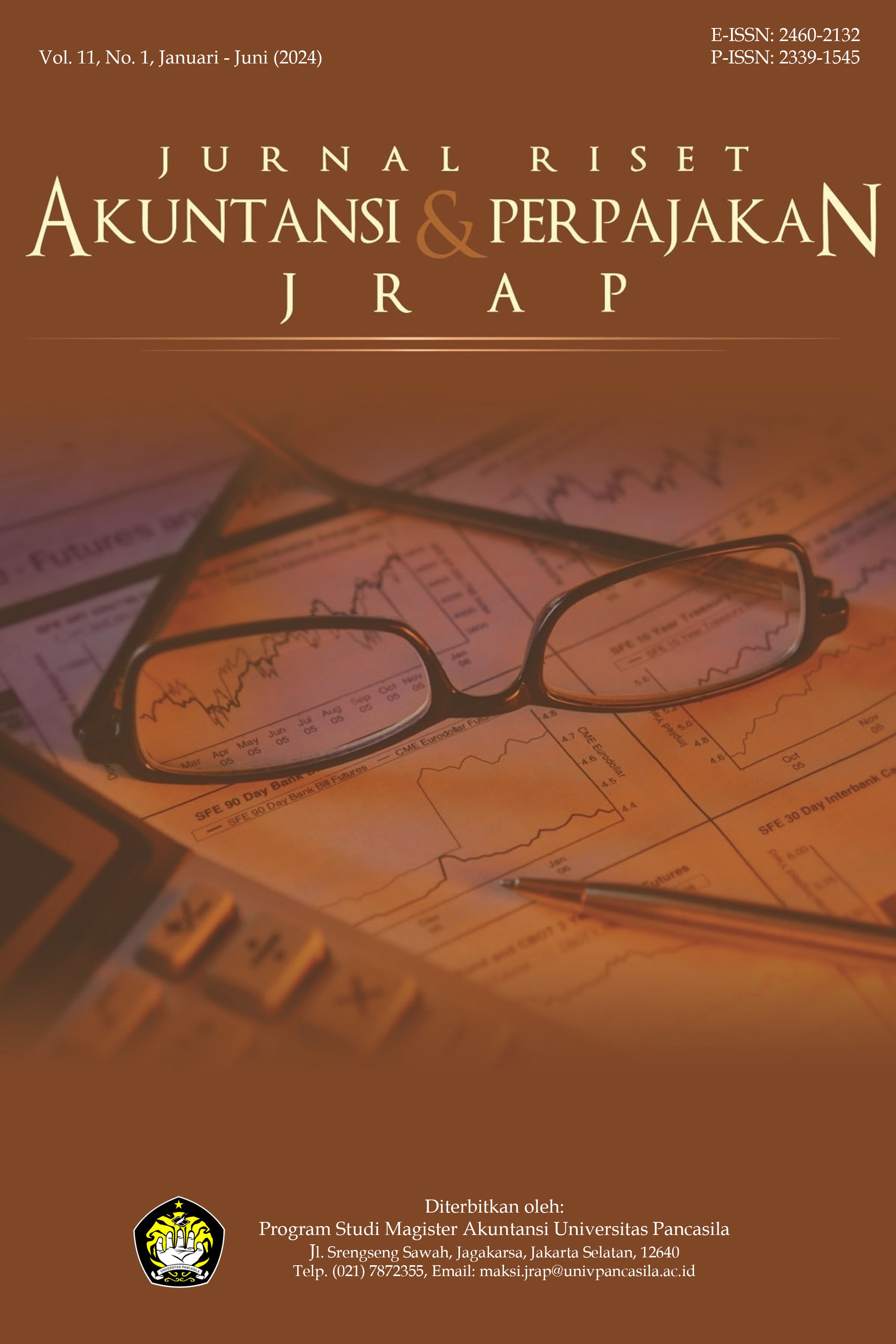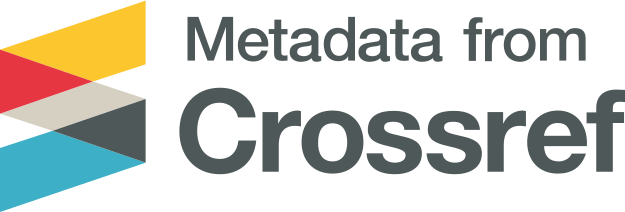Sosialisasi Perpajakan: Membangun Jembatan antara Kesadaran dan Pengetahuan Pajak Menuju Kepatuhan Pajak Bumi dan Bangunan
Abstract views: 302 | Download Pdf downloads: 585
Abstract
Data on the realization of Land and Building Tax revenue in Niukbaun Village has not met the target set by the Regional Revenue Agency Office of Kupang Regency from 2019 to 2022. This research aims to evaluate the role of tax socialization as a moderator of the relationship between tax awareness and knowledge and taxpayer compliance. In this research the author used a research design with a quantitative approach. The location of this research was carried out in Niukbaun Village, West Amarasi District, Kupang Regency, East Nusa Tenggara. Respondents in the research were all people who paid PBB in Niukbaun Village, West Amarasi District, Kupang Regency, totaling 1,373 taxpayers. Data processing uses SPSS. The research results show that the tax socialization variable moderates tax awareness on tax compliance and tax knowledge on tax compliance. The implications of this empirical evidence indicate that the tax socialization program carried out is able to encourage tax compliance so that this program can be implemented continuously.
References
Ajzen, I. (2005). EBOOK: Attitudes, Personality and Behaviour. McGraw-hill education (UK).
Anam, C., Purwanto, A., & Iswari, H. R. (2023). The Relationship between Leadership, Organizational Culture, and Human Capital in Organizations: Bibliometric. Journal of Management Research and Studies, 1(2), 208–217.
Ardila, N., Marlina, E., & Armel, R. S. (2023). Determinasi Kepatuhan Wajib Pajak dengan Sosialisasi Sebagai Moderating. Jurnal Akuntansi Dan Ekonomika, 13(1), 65–72. https://doi.org/10.37859/jae.v13i1.3974
Bernard, O. M., S. Memba, D. F., & Oluoch, D. O. (2018). Influence of Tax Knowledge and Awareness on Tax Compliance Among Investors in the Export Processing Zones in Kenya. International Journal of Scientific Research and Management (IJSRM), 6(10), 728–733. https://doi.org/10.18535/ijsrm/v6i10.em01
Chandrarin, G. (2017). Metode Riset Akuntansi Pendekatan Kuantitatif. Salemba Empat
Ermawati, N. . (2018). Pengaruh Religiusitas, Kesadaran Wajib Pajak Dan Pengetahuan Perpajakan Terhadap Kepatuhan Wajib Pajak. Jurnal Stie Semarang, 10(1), 106–122. https://doi.org/10.33747/stiesmg.v10i1.89
Fauziati, P., Minovia, A. F., Muslim, R. Y., & Nasrah, R. (2020). The impact of tax knowledge on tax compliance case study in Kota Padang, Indonesia. Journal of Advanced Research in Business and Management Studies, 2(1), 22–30.
Ghozali, I. (2018). Aplikasi Analisis Multivariate Dengan Program IBM SPSS 25. Badan Penerbit Universitas Diponegoro.
Hantono, H., & Sianturi, R. F. S. (2021). Pengaruh Pengetahuan Pajak, Sanksi Pajak terhadap Kepatuhan Pajak pada UMKM yang ada di Kota Medan. Jurnal Audit Dan Perpajakan (JAP), 1(1), 27–40. https://doi.org/10.47709/jap.v1i1.1176
Iswari, H. R. (2022). The Role of Financial Literacy on the Financial Performance with Financial Behavior as a Mediation (Case Study on Creative Industry Startups in Malang). Daengku: Journal of Humanities and Social Sciences Innovation, 2(5), 688–700. https://doi.org/10.35877/454RI.daengku1134
Iswari, H. R., & Dewi, D. C. (2021). Pengukuran Financial Literacy Startup Industri Kreatif Di Kota Malang. Conference on Innovation and Application of Science and Technology (CIASTECH), 59–66.
Iswari, H. R., & Wati, C. R. (2021). Financial literacy: What is the fact of the digital startups “Startup Singo Edan Malang”? ICONS 2020: Proceedings of the 1st International Conference on Social Science, Humanities, Education and Society Development, ICONS 2020, 30 November, Tegal, Indonesia, 265.
Juliana, E., Widagdo, S., & Ilmi, M. (2023). Faktor-Faktor Yang Mempengaruhi Kepatuhan Wajib Pajak Dalam Membayar Pajak Bumi Dan Bangunan Dengan Sosialisasi Pajak Sebagai Variabel Moderasi Di Desa Langkap Kecamatan Bangsalsari Jember. Riemba - Jurnal Riset Ekonomi, Manajemen, Bisnis Dan Akuntansi, 1(1), 75–87. https://doi.org/10.31967/riemba.v1i1.937
Lestary, S. R., Sueb, M., & Yudianto, I. (2021). The effect of tax fairness, tax socialization and tax understanding on tax compliance: a study on micro, small and medium enterprises (MSMEs). Journal of Accounting Auditing and Business-Vol, 4(1), 87-99. https://doi.org/10.24198/jaab.v4i1.31998
Saputri, A. M., & Khoiriawati, N. (2021). Pengaruh Pengetahuan Pajak, Sikap, Dan Kesadaran Wajib Pajak Terhadap Kepatuhan Wajib Pajak Dalam Membayar Pajak Bumi Dan Bangunan. SOSEBI: Jurnal Penelitian Mahasiswa Ilmu Sosial, Ekonomi, Dan Bisnis Islam, 1(1), 14-23. https://doi.org/10.21274/sosebi.v1i1.4917
Seralurin, Y. C., Kbarek, J. T., & Pattiasina, V. (2021). The effect of tax socialization and tax service quality on taxpayer compliance with tax knowledge asintervening variables. Central Asian Journal of Theoretical and Applied Sciences, 2(11), 54-72.
Yuliatic, N. N., & Fauzi, A. K. (2020). Literasi Pajak, Kualitas Pelayanan, Sanksi Perpajakan Dan Kepatuhan Wajib Pajak Umkm. Akutansi Bisnis & Manajemen (Abm), 27(2), 26-44. https://doi.org/10.35606/jabm.v27i2.668
Copyright (c) 2024 Daymiliana Astrivani Ismau, Retna Safriliana, Parawiyati

This work is licensed under a Creative Commons Attribution-ShareAlike 4.0 International License.
Authors who publish with this journal agree to the following terms:
- Authors retain copyright and grant the journal right of first publication with the work simultaneously licensed under a Creative Commons Attribution-ShareAlike 4.0 International License that allows others to share the work with an acknowledgement of the works authorship and initial publication in this journal.
- Authors are able to enter into separate, additional contractual arrangements for the non-exclusive distribution of the journals published version of the work (e.g., post it to an institutional repository or publish it in a book), with an acknowledgement of its initial publication in this journal.
- Authors are permitted and encouraged to post their work online (e.g., in institutional repositories or on their website) prior to and during the submission process, as it can lead to productive exchanges, as well as earlier and greater citation of published work (See The Effect of Open Access).














